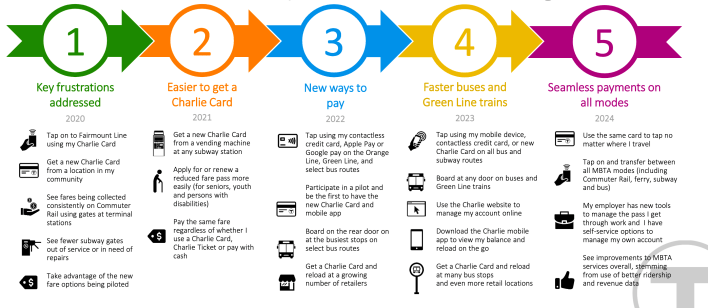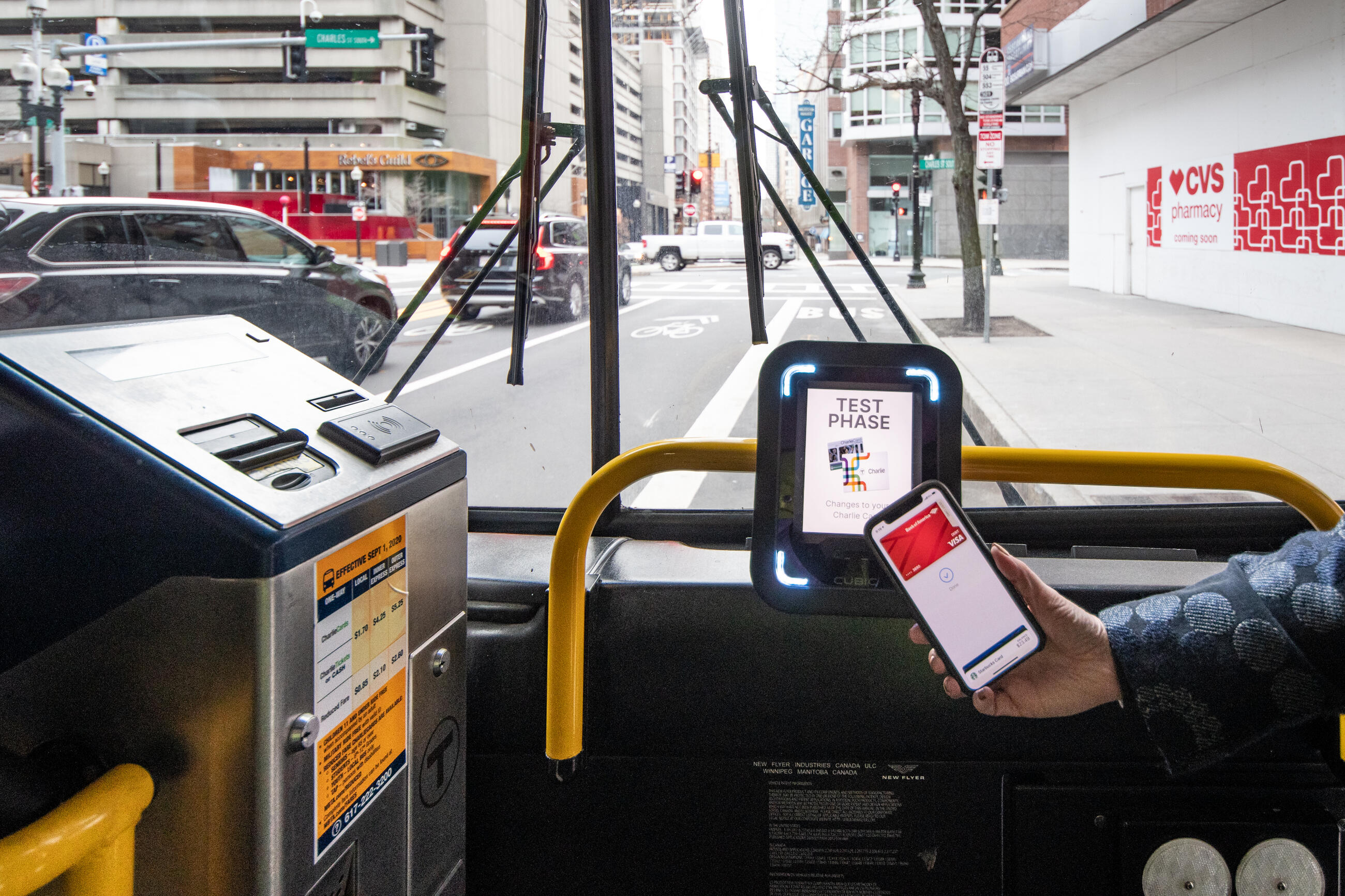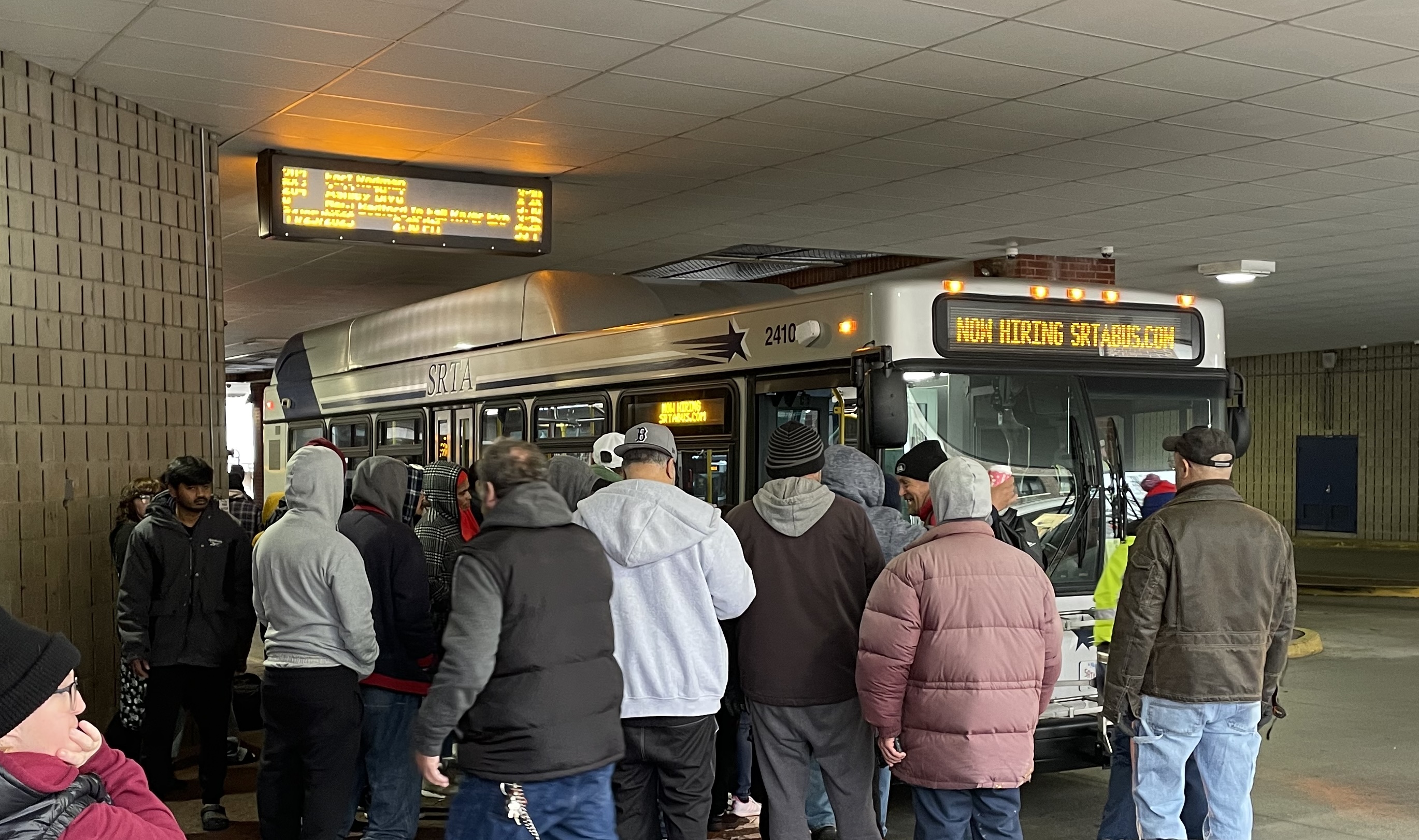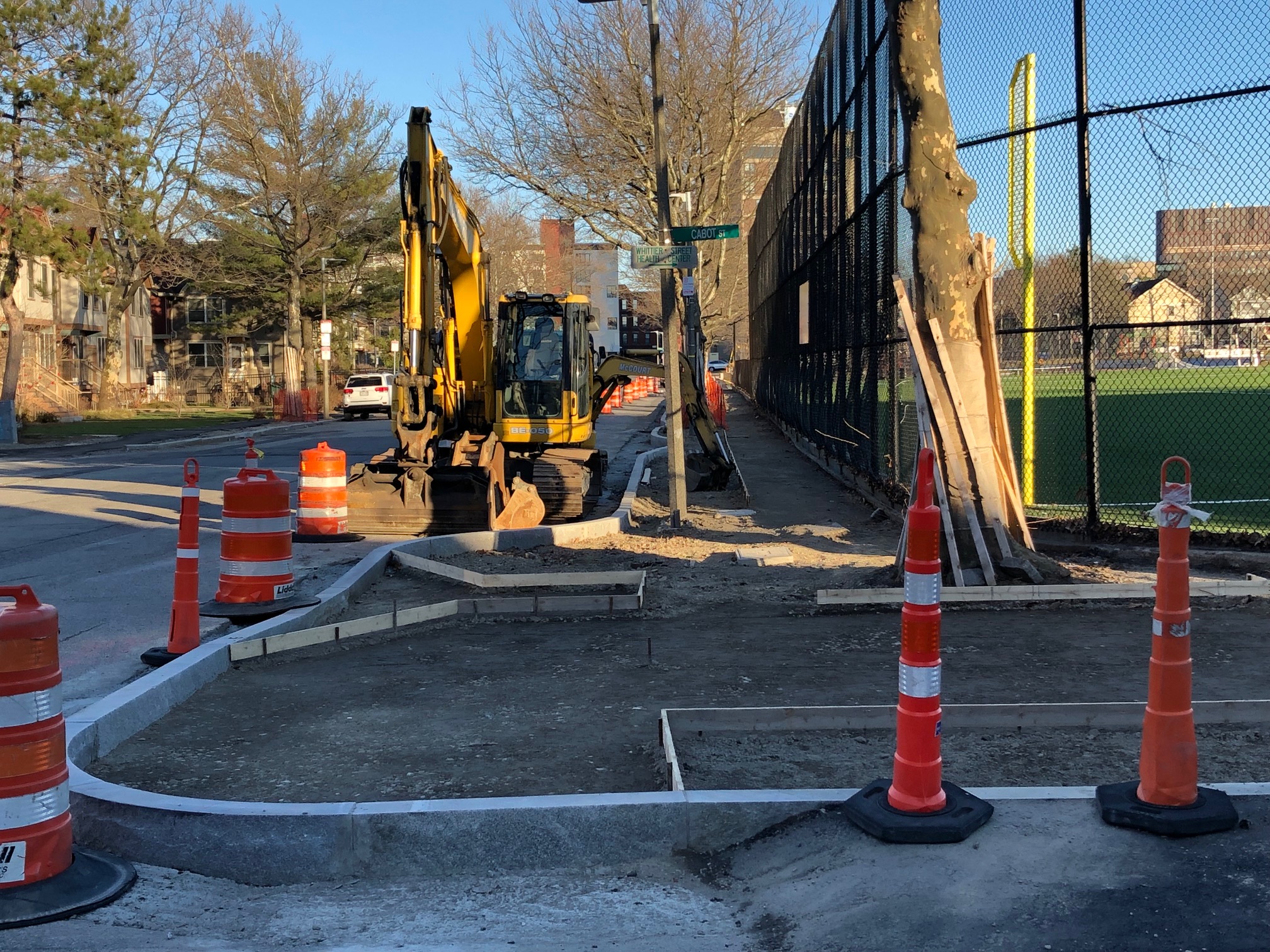A long-delayed project to replace the CharlieCard and introduce a new fare payment system for the MBTA could finally start delivering some results later this summer.
Under a proposed change order to the MBTA's contract with Cubic, the private-sector contractor for the new fare system, the T could start accepting tapped fare payments from phones and credit cards later this summer, and a new CharlieCard would debut in the spring of 2025.
The proposal also includes a modest reduction in the contract's total cost, after the MBTA's board previously approved a 30 percent budget increase in 2020.
According to Elizabeth Winters Ronaldson, the T's Acting Deputy Chief of Fare Revenue, the change order would split the contract's delivery of a new fare system into three phases, instead of delivering the entire system all at once.
The proposed first phase, slated for rollout this summer on subways and buses, would let the T accept contactless payments from mobile devices and credit cards on new fare-readers, like the one pictured at the top of this article.
"This is for customers who have a credit or debit card, mobile wallet, Apple Pay, Google Pay, or a tappable watch. They'll be able to pay as you go on the buses and subway starting this summer," said Winters Ronaldson.
A second phase would introduce a new CharlieCard and new fare vending machines in spring 2025, followed by a third phase to implement the new fares on commuter rail and ferries in 2026.
While the T rolls out its new forms of fare payment, it will continue accepting existing fare media.
"There won't be any changes for our customers who use CharlieCards now; those changes will start appearing in the spring of 2025," said Winters Ronaldson. "But we'll have a transition period when we'll have both systems in operation through 2026 at least."
Six years in, with few results
The MBTA's contract to roll out a new fare system with Cubic, a private-sector transportation and military contractor, dates to 2018, and is now many years behind schedule.
When the MBTA board of directors renewed its contract with Cubic in April 2020, several of the new system's purported benefits – like the ability to pay fares with a smartphone, and all-door boarding for buses and Green Line trains with the installation of new tap-to-pay fare readers – were expected to start rolling out in 2022.

Issues with Cubic aren't unique to the MBTA – the company has gotten a lot of ink in the Streetsblog network in the past week for its failures to deliver similar promises to other transit systems.
On Monday, StreetsblogNYC reported that the MTA was firing Cubic from its long-delayed project to bring the tap-and-go OMNY fare payment system to the MTA's commuter rail systems.
Later that day, StreetsblogSF reported that another Cubic project – a unified tap-to-pay fare card for the Bay Area's balkanized constellation of transit agencies – had encountered technical difficulties with the new fare readers, and would be delayed indefinitely.
Luckily for the T, its contract with Cubic is structured such that Cubic bears most of the financial burden for the delays in Massachusetts.
Although the total value of the contract is nearly $1 billion, the T has only spent about $23 million to date, for things like the new fare readers pictured at the top of this article.
A $41 million consolation discount
On Thursday, MBTA Acting Chief Administrative Officer Jeff Cook joined
Elizabeth Winters Ronaldson, Acting Deputy Chief of Fare Revenue to present the Finance and Audit Committee of the MBTA Board of Directors yet another proposal to adjust the T's contract with Cubic.
In addition to introducing the three-phase implementation schedule, the latest adjustment to the contract could shave $41 million from the previous contract's total cost.
Under the new agreement, the T would pay Cubic $572 million for capital equipment, like new fare readers and vending machines, plus $354 million for Cubic to operate the system over the course of the contract's term.
The T would pay Cubic an additional $11 million incentive payment if it manages to deliver a working fare system on the new schedule.
MBTA Board Chair Thomas Glynn asked Cook where the $40 million in savings was coming from.
"I think through negotiations... and holding them accountable for their obligations of being late, I would say it's, that's the simple answer.
"So you didn't eliminate anything?" asked Glynn.
"Nothing was eliminated (from the contract)," said Cook. "We're getting the same functionality, the same service, except its $40 million less."






